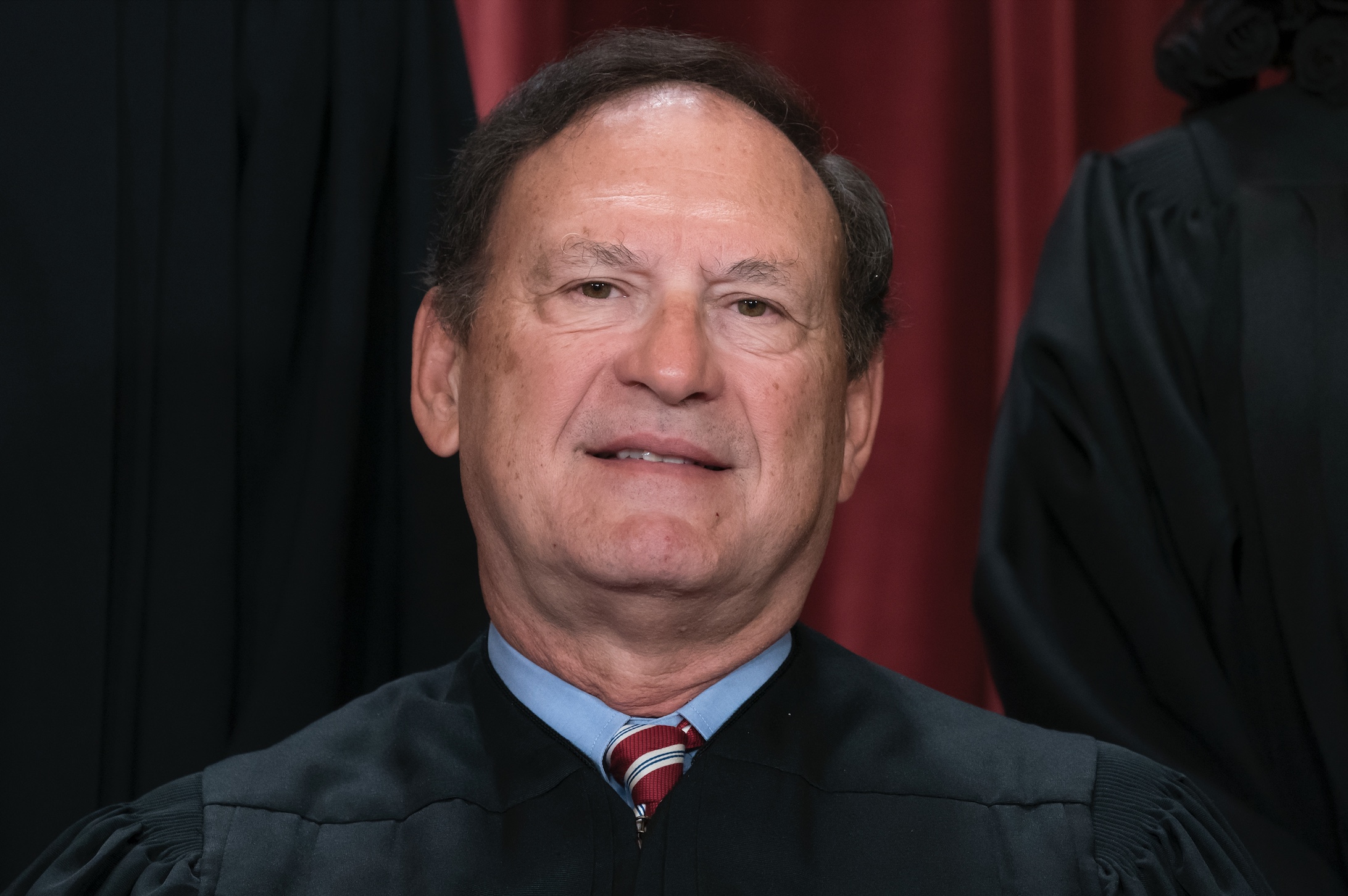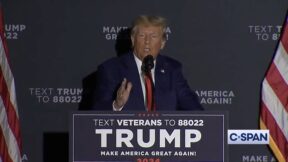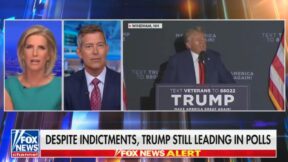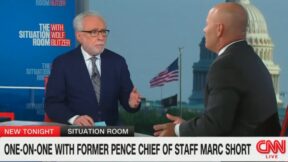Justice Alito Straight Up Says Congress Has No Power to ‘Regulate’ The Supreme Court: ‘I Know This is a Controversial View’

AP Photo/J. Scott Applewhite
Supreme Court Justice Samuel Alito spoke with the Wall Street Journal this month for a profile published on Friday.
WSJ writers David B. Rivkin Jr. and James Taranto spoke with Alito in an “early July interview at the Journal’s New York offices” and published many of the quotes from that conversation in their profile, titled, “Samuel Alito, the Supreme Court’s Plain-Spoken Defender.”
The profile ran through many of the Court’s recent decisions and noted the controversy surrounding the Court of late, given reporting of lavish gifts being received by justices and a push by lawmakers for more transparency.
“The attacks on the Court are sure to keep coming as well. Last week the Senate Judiciary Committee voted along party lines to advance Sen. Sheldon Whitehouse’s Supreme Court Ethics, Recusal and Transparency Act, which purports to impose on the justices and their clerks regulations ‘at least as rigorous as the House and Senate disclosure rules,’” noted Journal.
Alito, a hardline conservative on the Court, weighed in on Congress’s efforts saying:
Justice Alito says he voluntarily follows disclosure statutes that apply to lower-court judges and executive-branch officials; so do the other justices. But he notes that “Congress did not create the Supreme Court”—the Constitution did. “I know this is a controversial view, but I’m willing to say it,” he says. “No provision in the Constitution gives them the authority to regulate the Supreme Court—period.”
Do the other justices agree? “I don’t know that any of my colleagues have spoken about it publicly, so I don’t think I should say. But I think it is something we have all thought about.”
“The political branches have other weapons they could deploy against the court. The Constitution doesn’t specify the number of justices, so Congress could pack the court by enacting legislation to expand its size,” noted the Journal of one historic argument made in other branches to change the Court.
The Congressional Research Service tackled the issue of whether or not Congress has authority over the Court in a report from January. “Supreme Court decisions and longstanding practice also establish that Congress has the power to regulate many aspects of the Supreme Court’s structure and procedures,” noted the Congressional report.
Law professor Steve Vladeck replied to Alito’s claim, noting, “It’s not just a “controversial” position; it’s belied by 234 years of practice, and would turn the separation of powers totally on its head. It’s rather stunning that he’d say this out loud. Stunning—& revealing of the extent to which he thinks the Court *must* be unaccountable.”
Vladeck pointed to one example rooted in the language of the Constitution, Article III, Section 2 of the Constitution.
__
Have a tip we should know? tips@mediaite.com




